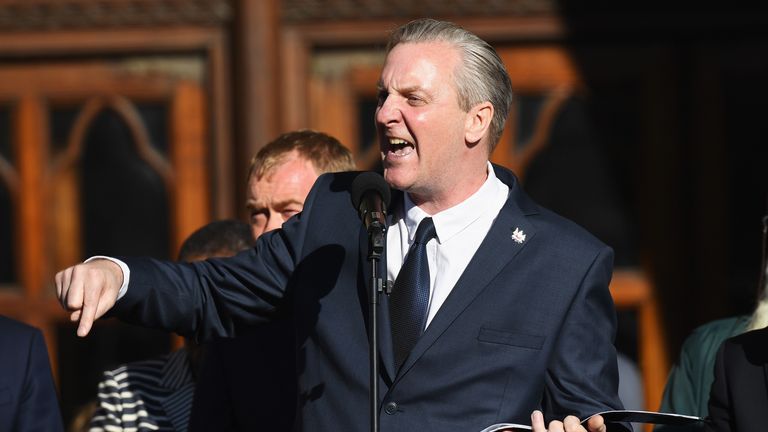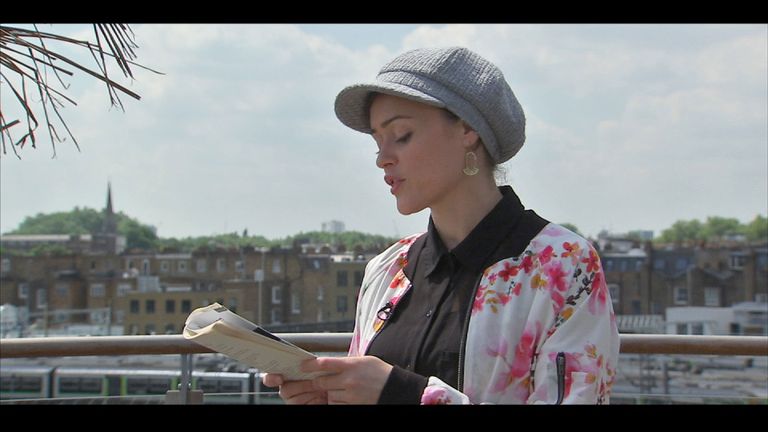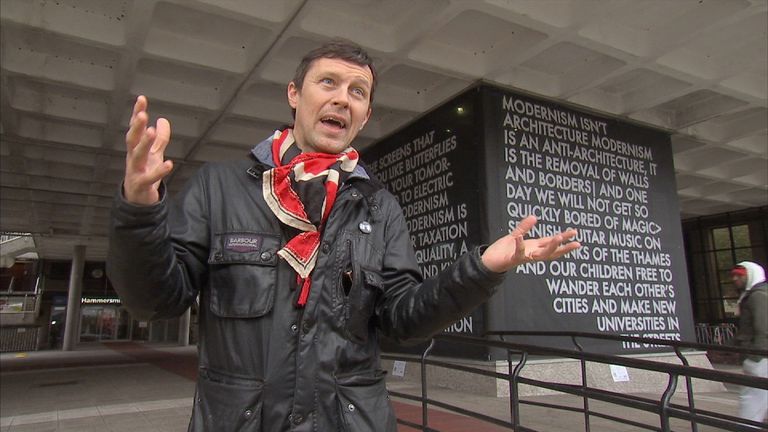Politicians could 'learn a lot' from the power of poetry
Tony Walsh's moving poem in the aftermath of the Manchester bombing highlights the political and radical potential of poetry.
Sunday 28 May 2017 01:52, UK
As the people of Manchester were coming to terms with the terrible attack on their city, there was one man - poet Tony Walsh - who found the words that the rest of the country was struggling to say.
As he read This Is The Place at a vigil for the victims, less than 24 hours after the atrocity, he showed how powerful poetry can be.
His words included: "Because this is a place that has been through some hard times: Oppressions, recessions, depressions, and dark times.
"And there's hard times again in these streets of our city, but we won't take defeat and we don't want your pity.
"Because this is a place where we stand strong together, with a smile on our face, greater Manchester forever."
Walsh's words tapped into a moment. In the last couple of years, British poetry has become a vibrant scene - propelled by social media, spoken word and self-publishing.
According to Donald Futers, poetry editor at Penguin, we're experiencing a renaissance in modern poetry: diverse, different and speaking to people "who maybe didn't think they were being spoken to by poetry before".
"We're seeing much more poetry being written by a more diverse pool of poets about a wider range of subjects," he said.
"Thanks to the internet, there's an unprecedented degree of cross pollination and dialogue [between poets] on social media and the big publishers are picking up on a much wider audience."
Last year, annual sales of poetry books in the UK reached almost £10m for the first time - up by 12% on the year before, according to Nielsen Book Research.
Performance poet Sabrina Mahfouz, author of The Things I Would Tell You: British Muslim Women Write, is taking part in The Last Word Festival in London. She says poetry is "occupying an important place" at the moment.
"I really believe in the political and radical potential of poetry. In recent years the need for people to access the truth that's inside themselves is even greater."
From George The Poet to Kate Tempest, poetry has its own spoken-word superstars and the popularity of 'Instapoets' like Rupi Kaur is clearly translating into book sales. The Canadian has over a million followers on Instagram and a self-published collection of her work is now on its 16th print run.
Street artist Robert Montgomery believes politicians could learn a lot from poets. His latest work, an Election Poem, can be seen on 2,000 billboards across Britain.
"Instead of appealing to the lowest common denominator of people's fears, politicians could be arguing for our ideals as a society," he said.
"We want to live in a fair, educated society, without discrimination and politicians could be arguing for the positivity of that. I think we need to argue for idealism again."
The Last Word Festival takes place at London's Roundhouse until 10 June.





